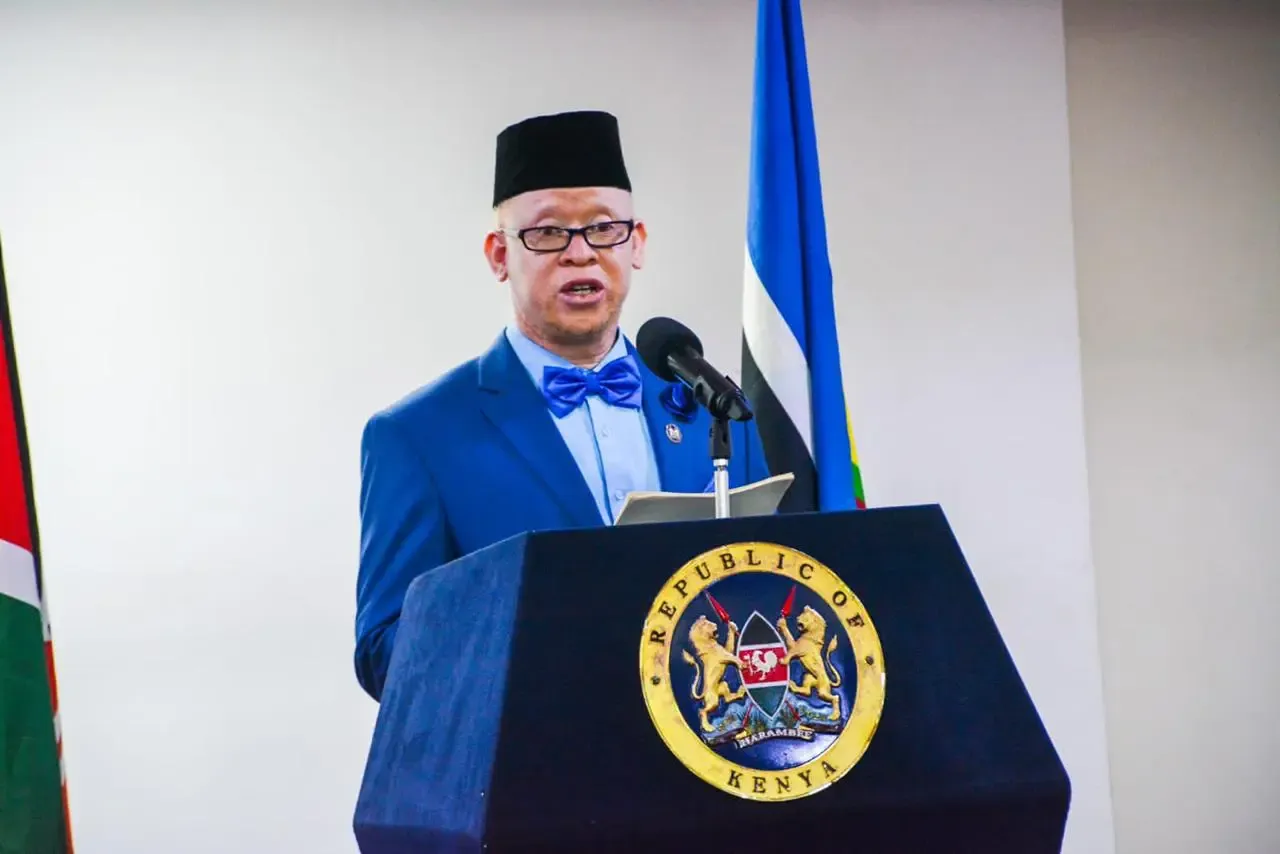Kenya refutes allegations of supplying arms to Sudan’s RSF rebel group.
Government maintains its role is strictly humanitarian and peace-focused.
Controversy sparked by footage showing Kenyan-labelled ammunition in Sudan.
Nairobi insists it recognizes no connection to the alleged weapon shipments.
Sudan has since suspended all imports from Kenya, escalating diplomatic tensions.
Kenya Rejects Claims of Arming Sudan Rebels Amid Tense Cross-Border Accusations
A Quick Recap of This Story
Kenya’s government has strongly dismissed allegations that it played a role in supplying weapons used in the ongoing Sudanese conflict. The accusations emerged following an exposé claiming that Kenyan-labelled ammunition was found in the possession of Sudan’s Rapid Support Forces (RSF), a paramilitary group battling for control in the war-torn country.
In a swift and unequivocal response, the Kenyan government, through its official spokesperson, clarified its stance, asserting that the country is not in any way complicit in Sudan's armed hostilities.
Humanitarian Aid and Regional Diplomacy, Not Weapons
Government Spokesperson Isaac Mwaura addressed the allegations directly, stating that Kenya’s focus in Sudan is limited to humanitarian intervention and peace support through regional frameworks such as IGAD. The country, he explained, has no vested interest in military engagements or illicit trade in arms. Kenya, he said, has already contributed over 250 million shillings to support peace and humanitarian relief in Sudan.
Furthermore, Mwaura reiterated that Kenya is open to playing a neutral role in the conflict by facilitating dialogue between Sudan's warring parties. He noted that Kenya is prepared to host both the Sudan Armed Forces and the RSF to foster a peaceful resolution—something that underscores its impartial diplomatic approach.
Footage Triggers Controversy
The controversy stems from video footage and reports that surfaced online showing ammunition boxes with markings linked to Kenya. These boxes were allegedly discovered in a captured RSF depot. The visuals quickly sparked speculation about whether Kenya might be arming one side of the conflict, deliberately or inadvertently.
However, Kenya’s Ministry of Defence responded by distancing itself from the crates, stating it could not verify their origin. Officials said the images were unfamiliar and lacked credible identifiers to link them to Kenya's military or official exports.
While this rebuttal sought to clear the air, it raised fresh questions about whether these weapons were smuggled, stolen, or possibly moved through black-market networks beyond the control or knowledge of the Kenyan government.
Lack of Clarity on Arms Trade Records

Notably, while the government dismissed the ammunition labels and denied knowledge of the crates, it stopped short of publicly disclosing a record of its arms trade activities. This lack of clarity has left a void, allowing speculation to persist, especially on whether Kenya has in the past imported or re-exported arms that could explain the circulation of its marked crates.
The absence of detailed data on Kenya’s military procurement and trade raises concerns about potential loopholes, either through third-party arms transfers or misuse of trade routes.
Sudan Responds with Economic Retaliation
In a retaliatory move, the Sudanese government imposed an immediate suspension of all imports from Kenya, citing Nairobi’s decision to host the RSF in diplomatic talks. Sudan’s trade ministry announced a full embargo on Kenyan goods via all points of entry—land, sea, and air.
The decision signals a breakdown in diplomatic trust and threatens to derail regional trade, which had remained resilient despite Sudan’s internal turmoil. For Kenya, this abrupt suspension poses not just a diplomatic challenge, but also economic consequences, particularly in regional logistics and cross-border commerce.
Kenya’s Diplomatic Gamble
Kenya’s willingness to host rebel leaders as part of peace efforts—while controversial—appears rooted in its broader diplomatic doctrine: engaging with all sides to resolve conflicts. This approach has, in the past, earned Nairobi recognition as a regional peacemaker. However, hosting one party in a complex civil war may be perceived by others as taking sides.
This current episode highlights the fragility of regional diplomacy in East Africa, where perceptions and alliances can quickly shift amid security and political tensions.
Conclusion: A Fragile Peace, A Delicate Balance
Kenya’s emphatic denial of arms involvement in Sudan’s war may help reaffirm its stance as a neutral facilitator of peace, but lingering questions and suspicions continue to cloud the issue. As Sudan’s war rages on, and as Kenya navigates accusations, trade sanctions, and regional roles, its next steps will likely define whether it maintains credibility as a mediator—or becomes further entangled in cross-border conflict politics

0 comments
Be the first one to comment, but before that...
Here are some best practices for writing comments: